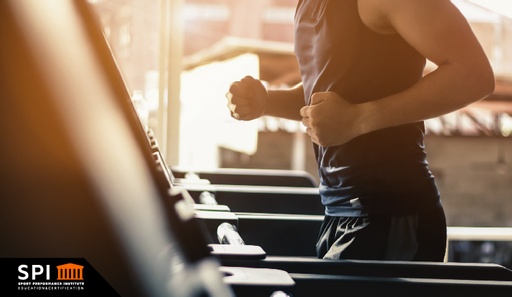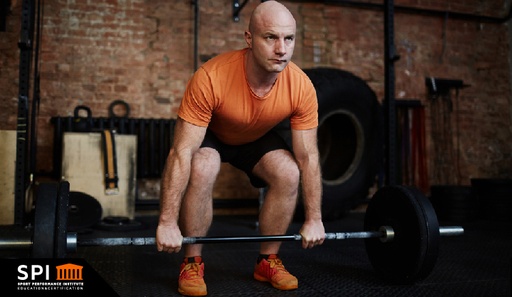All Courses

Duration: 3 hours/session; 2-3 sessions/week; for 2.5 months
Number of seats: 25
This comprehensive course is designed to provide the participant with the knowledge and skills needed to develop fitness programs for health, appearance and fitness. Topics include exercise physiology, anatomy, detailed descriptions of the role of exercise and nutrition in weight control programs, health aspects of strength training, and strength program design criteria.
Video in English
Video in Arabic
Section I: Anatomy and Exercise Physiology in relation to Fitness Training
Muscle Fibers and Motor Units
• The 4 fiber types
• Henneman’s size principal
• Myosin isoforms and fiber type alteration with training
Energy Metabolism
• Energy systems and metabolic pathways
• Pyruvate and the metabolic choice
• Co-dependence of metabolic pathways
Cardiac Adjustment to Exercise
• Problems with 220-age heart rate formula
• Cardiac drift, sweating and thermal load
• Proper use of heart rate and the determination of training intensity
Skeletal and Muscular Anatomy
• Overview of skeletal system
• Overview of muscular system
Section II: Exercise for Weight Loss
• Benefits and risks of weight loss
• Manipulation of hormonal factors to optimize weight loss
• Respiratory exchange ratio and the determination of optimal exercise intensity
• Interaction of fat, carbohydrate and protein metabolism during exercise and weight loss
• Long moderate endurance versus interval training
• Nutritional aspects of weight loss and the Canada Food Guide
Section III: Weight Training Program Design
• Metabolic, neural, and structural causes of fatigue
• The implications of high level of lactic acid to strength development
• Volume, Intensity, and Tempo
• Rest between sets and recovery between sessions
• Exercise selection
• Professional Program Design
Section IV: Warm up, Cool down, and Flexibility
Warm up and Cool down
• Physiological benefits of warm up
• General, Specific, and Passive warm up
• Designing a warm up program
• Importance of cool down
Flexibility
• Types of flexibility
• Dynamic vs. Static stretching
• Flexibility Programs
• Stretching Controversies
Section V:Training for Special Population
• Pregnant Woman; Elderly; Kid
Section VI: Fitness Testing
• Skin Fold Fat Test, Muscular Strength Test
• Muscular Endurance Test, Flexibility Test
• Cardiovascular Endurance Test
Delivery method: combination of online (Zoom) and Live (Gym) training

Number of seats: 25
Duration: 3 hours/session; 1-2 sessions/week; for 2 months
Teacher: Nidal Malaeb

Personal Trainer Entry Qualification
This practical course is designed to teach proper exercise techniques for common and specialized free weight, spotting, Swiss Ball, and Balance Training.
This practical course (24 CECs) is designed to teach proper exercise techniques for common and specialized free weight, spotting, Swiss Ball, and Balance Training. In addition, you will learn teaching progressions, biomechanics of weight lifting, how to identify and correct common technical problems and multi-joint free weight movements. Theories of skill learning and proper communication are also detailed. Theoretical materials are explained in a class room setting and the practical exercises are given in the gym.
Video in English
Video in Arabic
Course details:
Motor Learning
- Stages of skill learning
- Feedback and communication skills
- Teaching progression
Tools to Enhance Learning
- Proprioceptive Training
- Video
- Imagery
Exercise Technique
- Proper exercise technique and Muscle Anatomy:
- Trapezius
- Chest
- Upper Back
- Rotator Cuff
- Deltoids & Arms
- Core
- Legs
- Weight Training Biomechanical Analysis
- Spotting
- Correcting common errors
Some of the exercises include
Squats Front | Squats |
Split Squat | Lunges |
Step Ups | Deadlift |
Romanian Deadlift | Sumo Deadlift |
Back Extensions | Rowing movements |
Cleans | Hang Cleans |
Clean Pulls | Snatch |
Push Press | Jerks |
Trunk and Shoulder Stabilization Exercises Bench Press and variations
Stabilization Routines (Core strength Exercises; Hip stabilization; Rotator Cuff Exercises)
Balance and Proprioception (Physio ball; Swiss ball; Teeter Boards; Unilateral Training)
Power Training (Intro to Plyometric & Jump Training; Olympic Lifts)
Delivery method: combination of online (Zoom) and Live (Gym) training